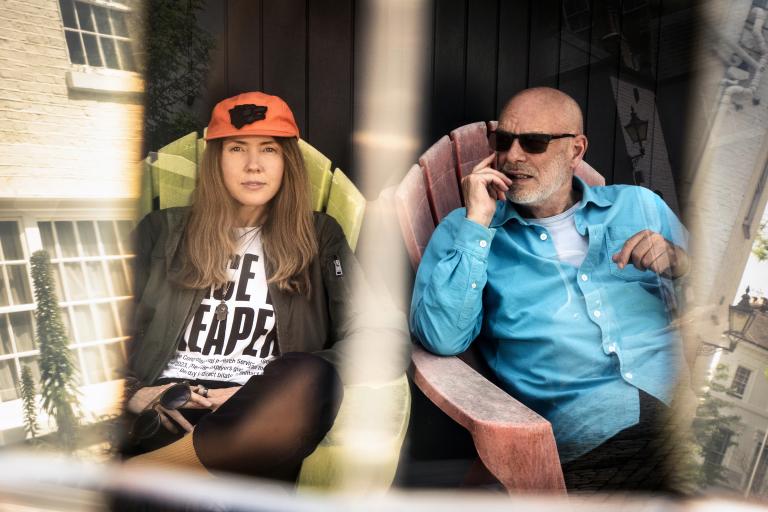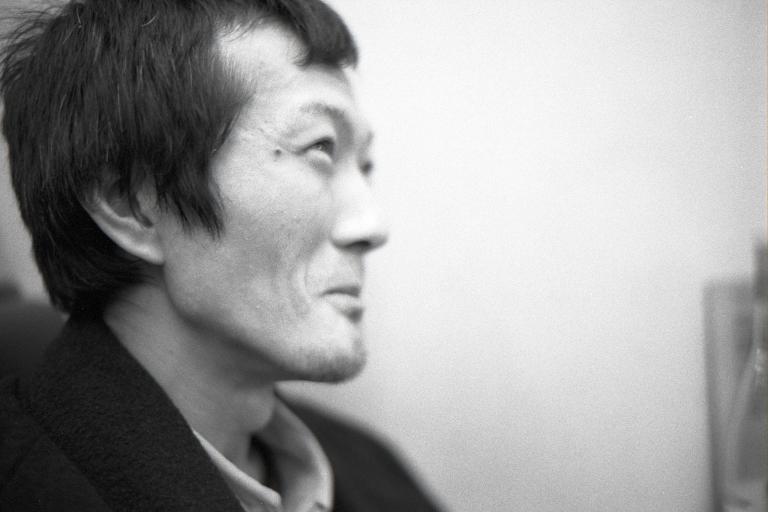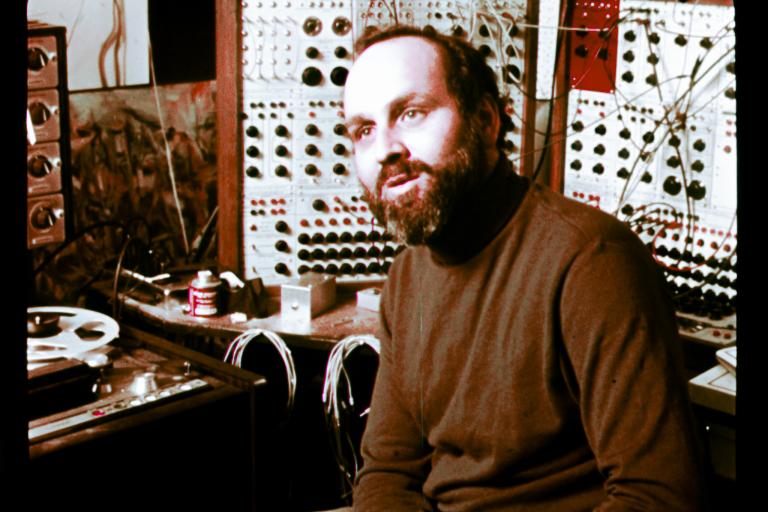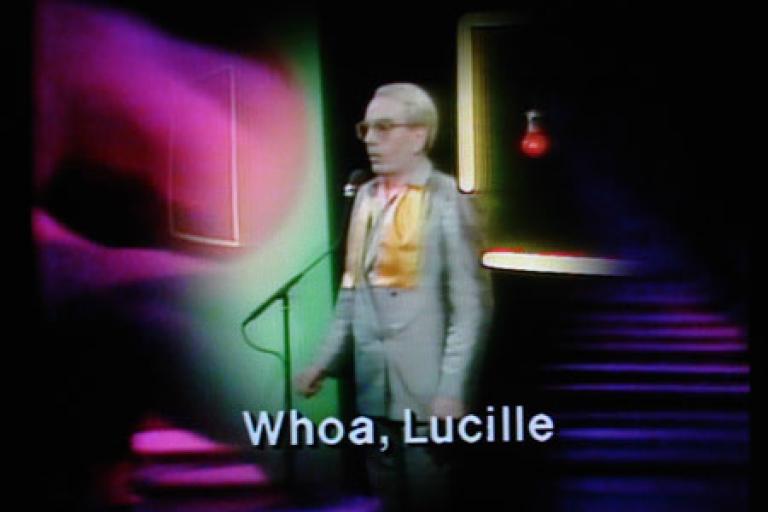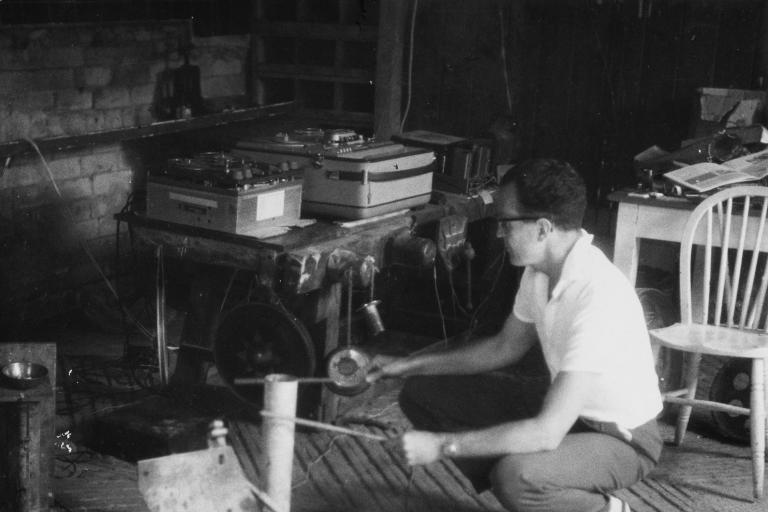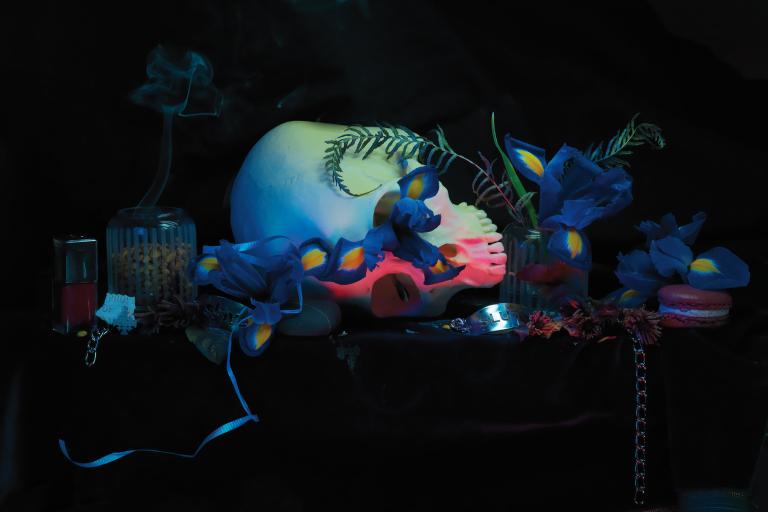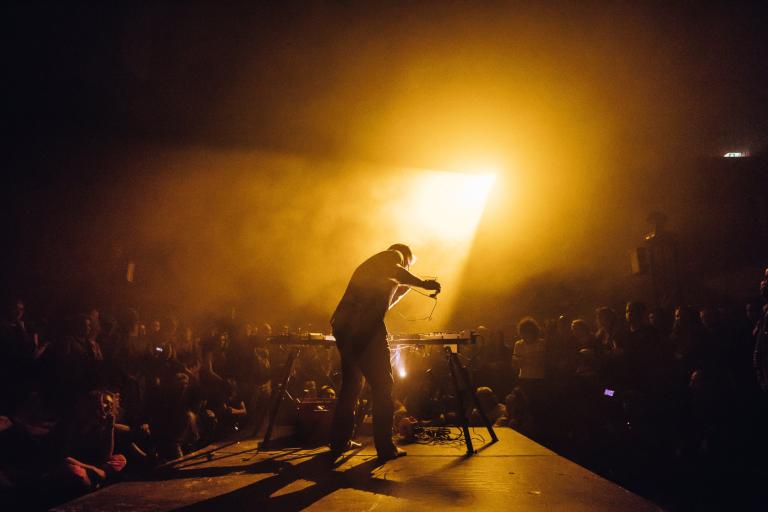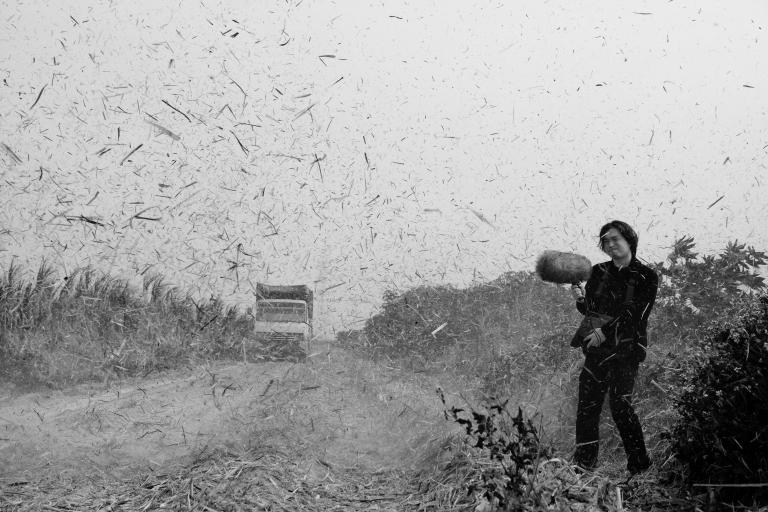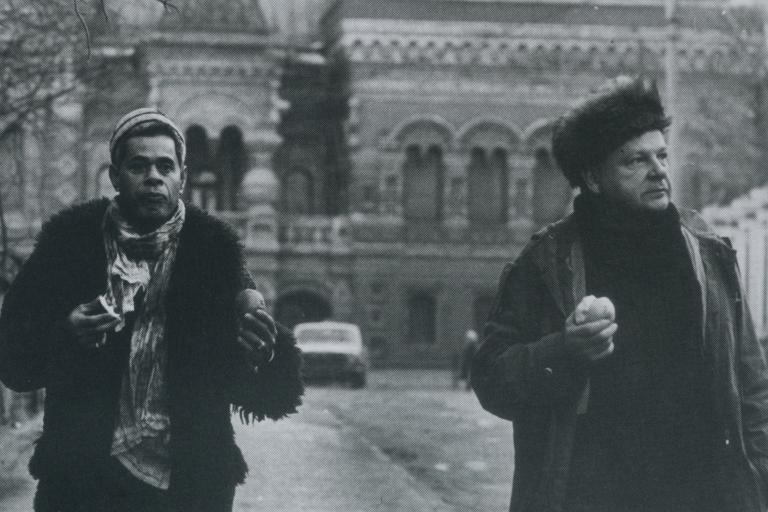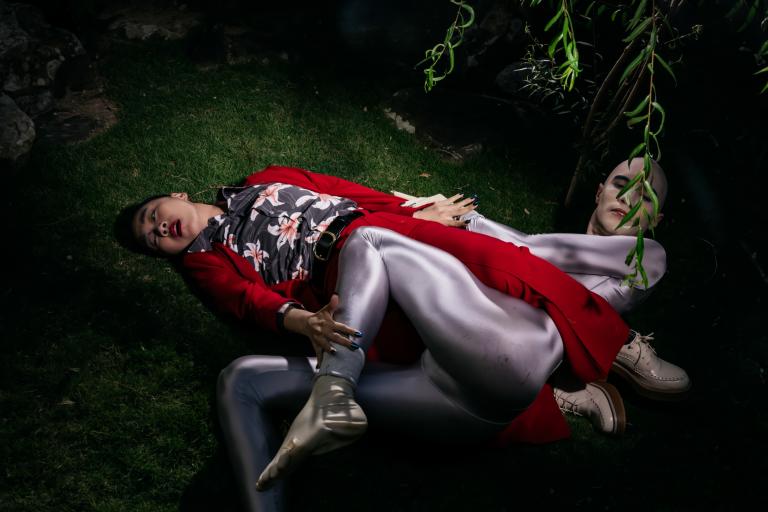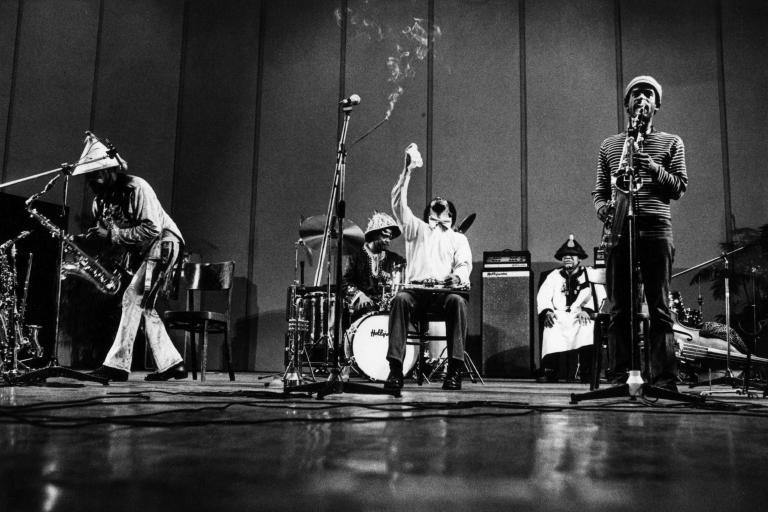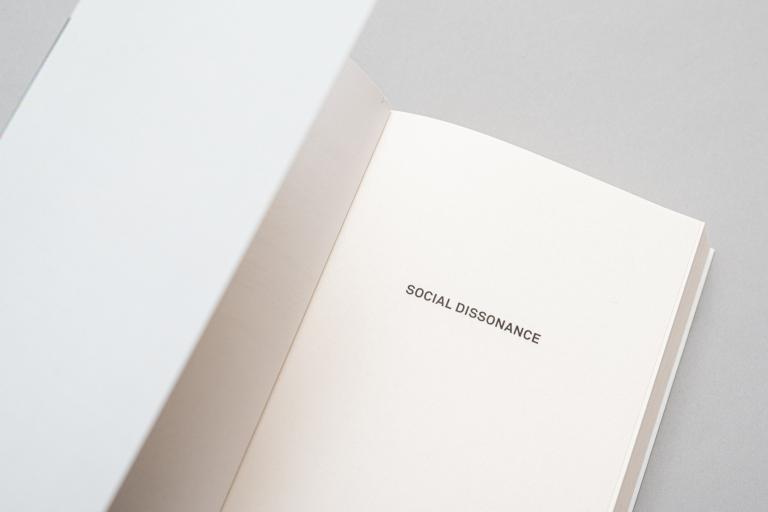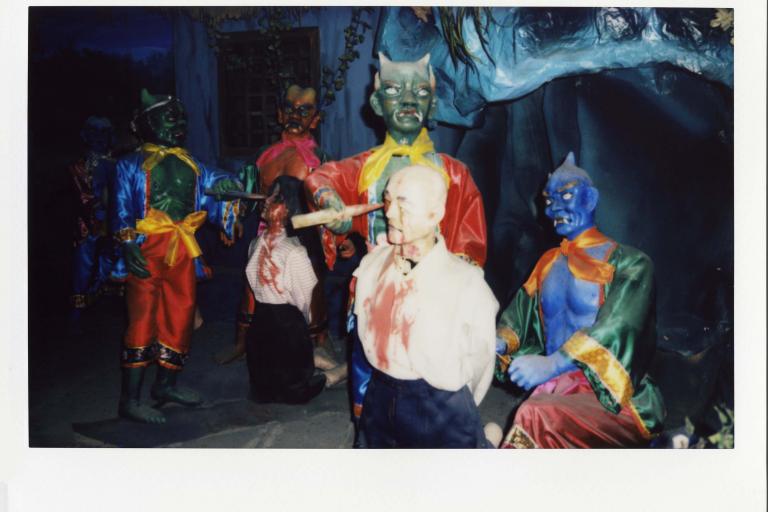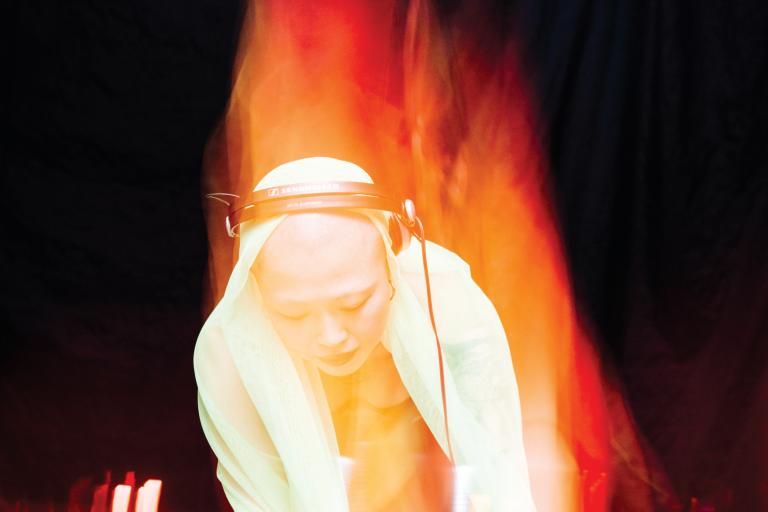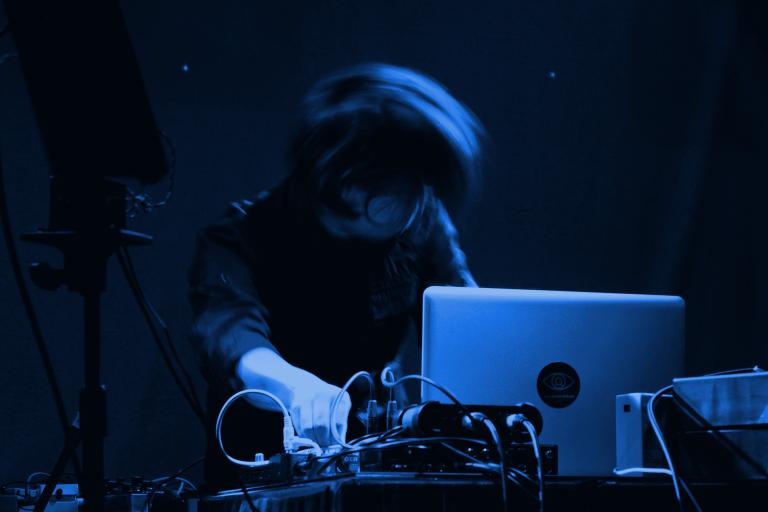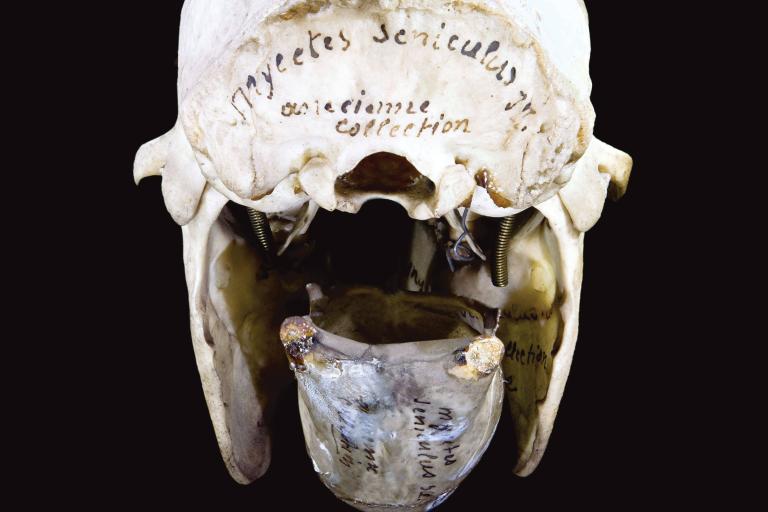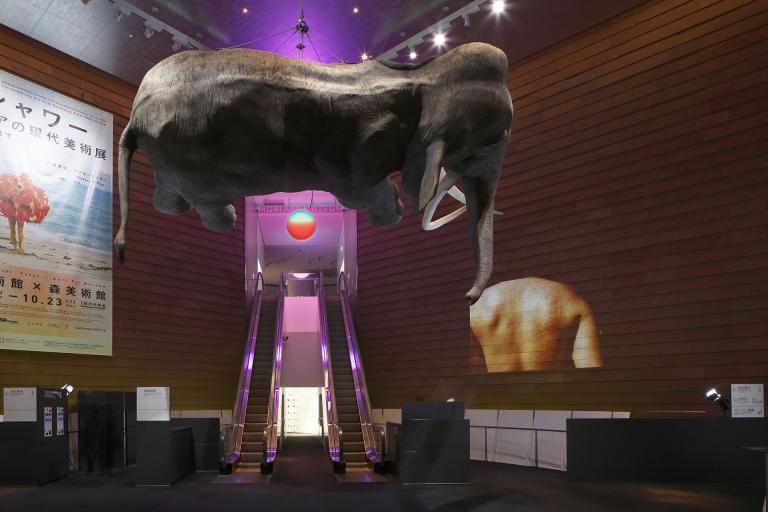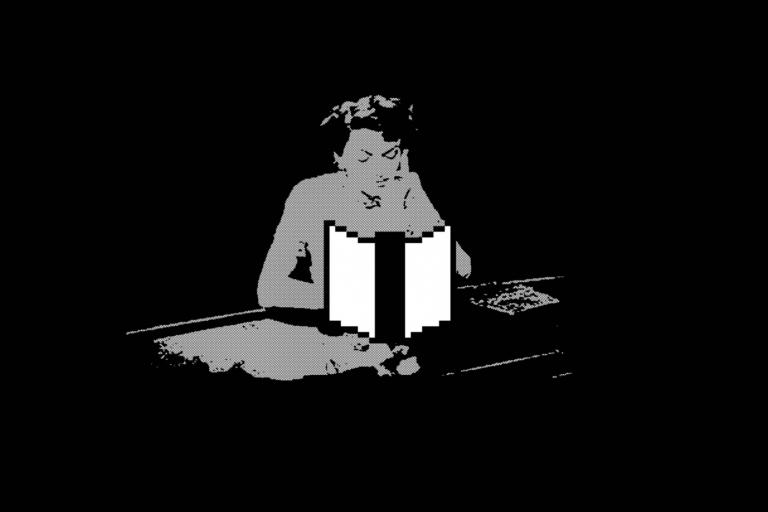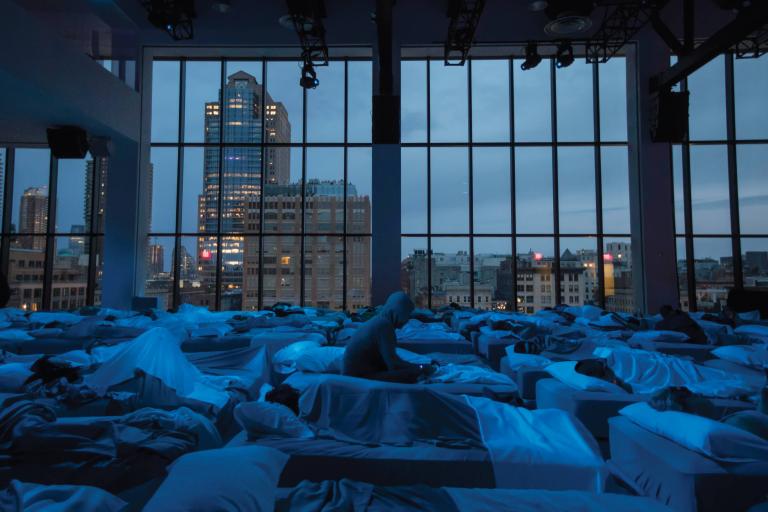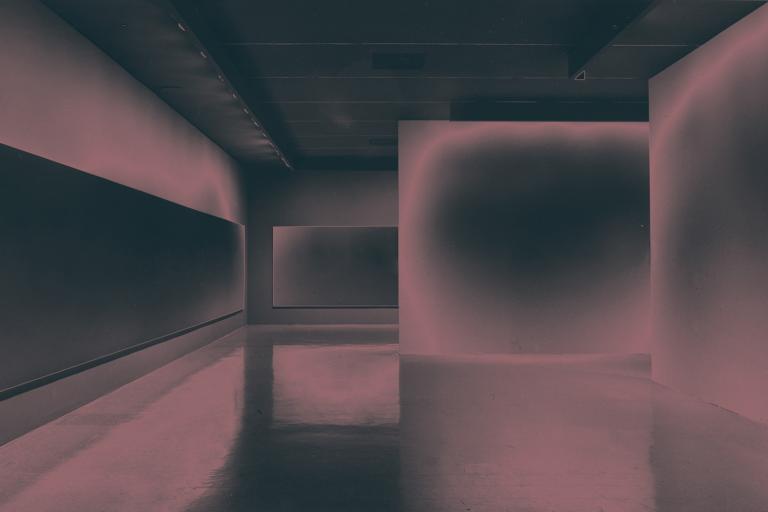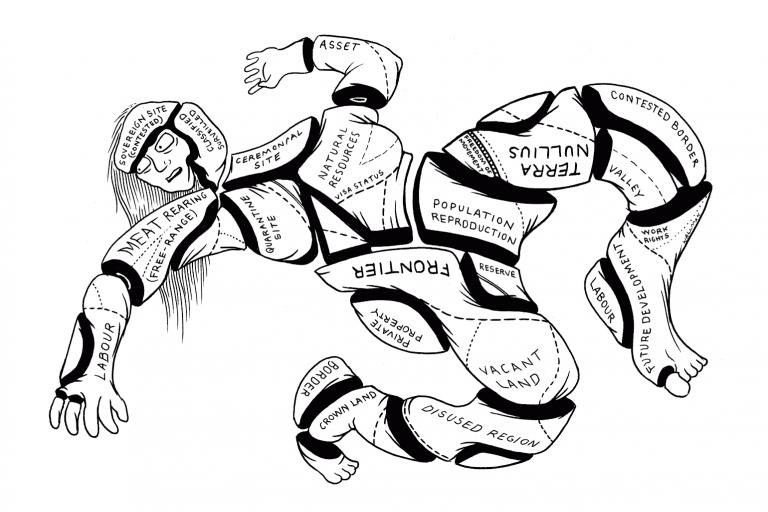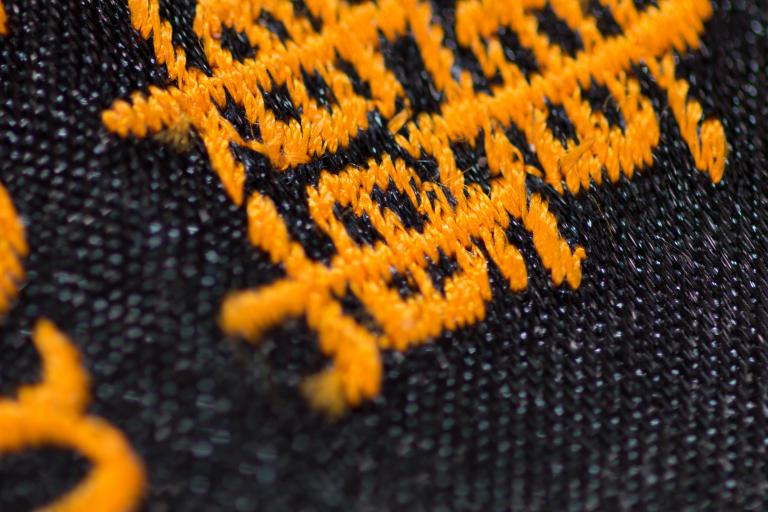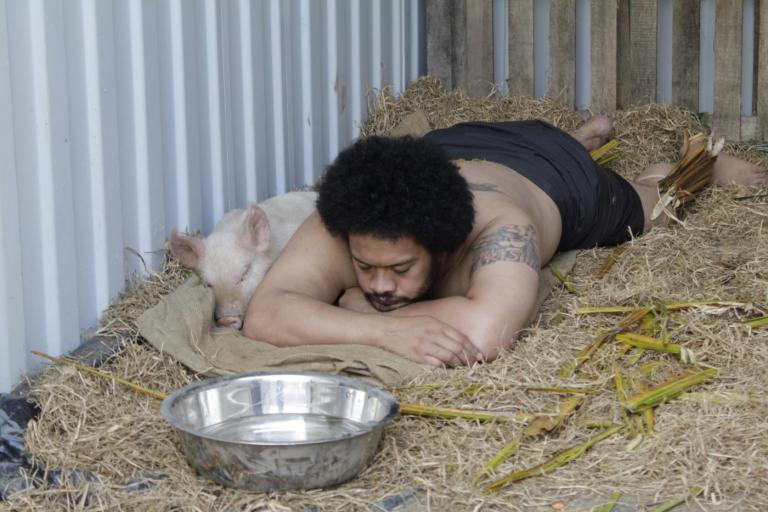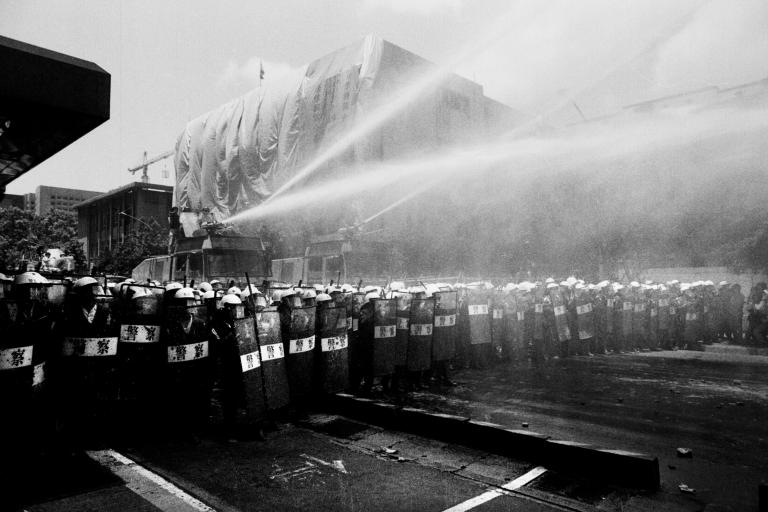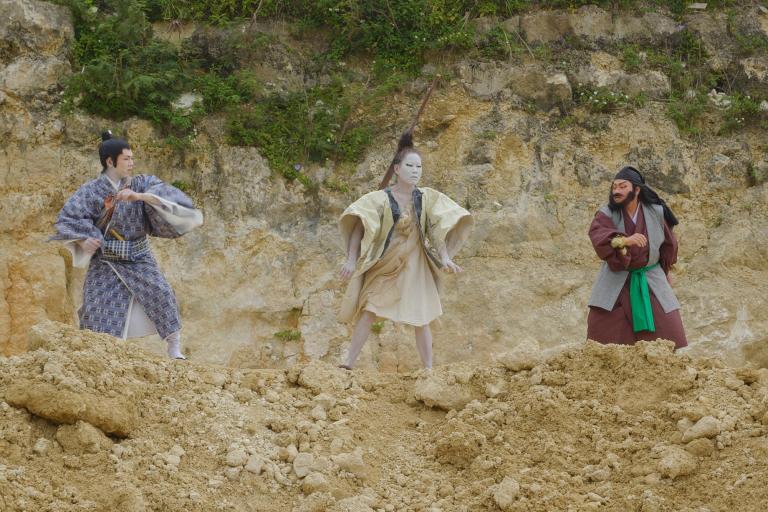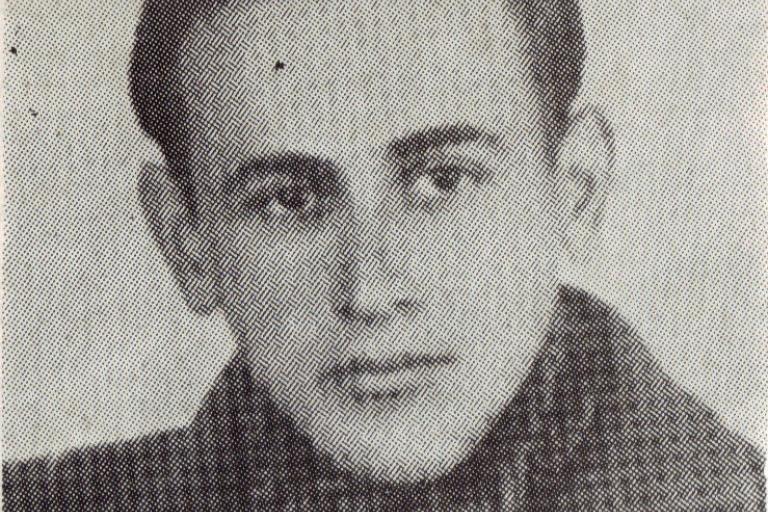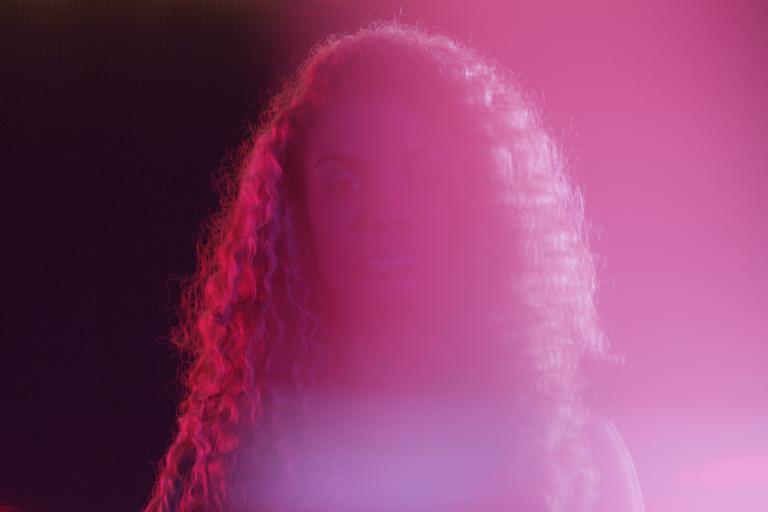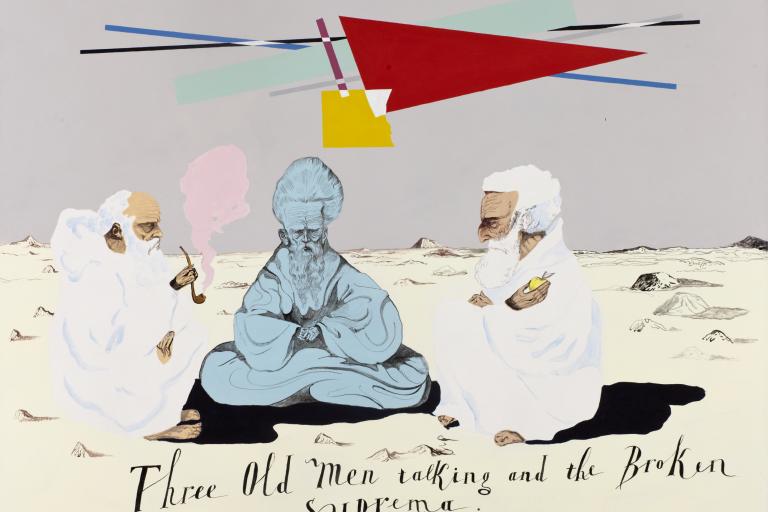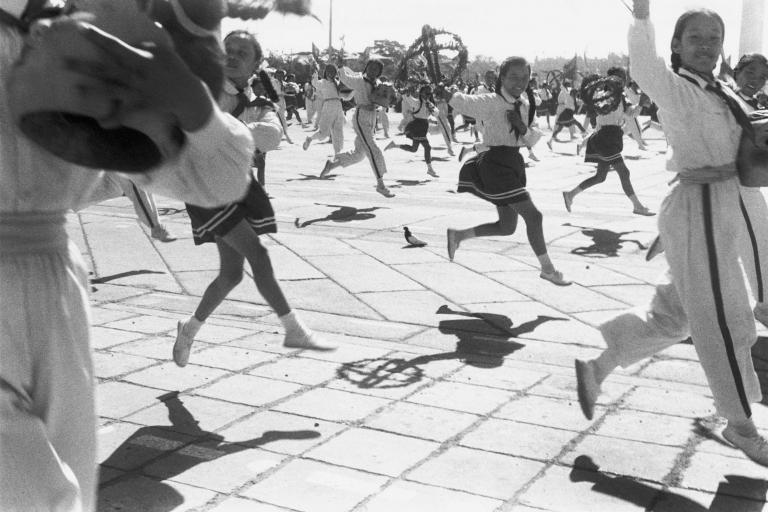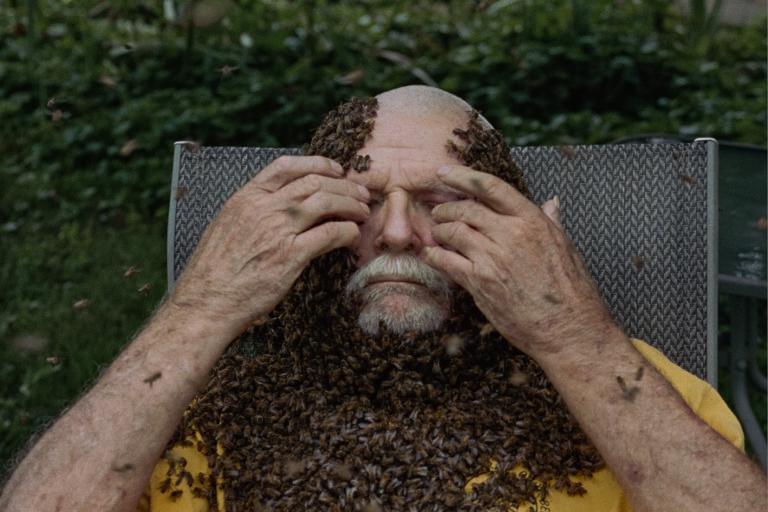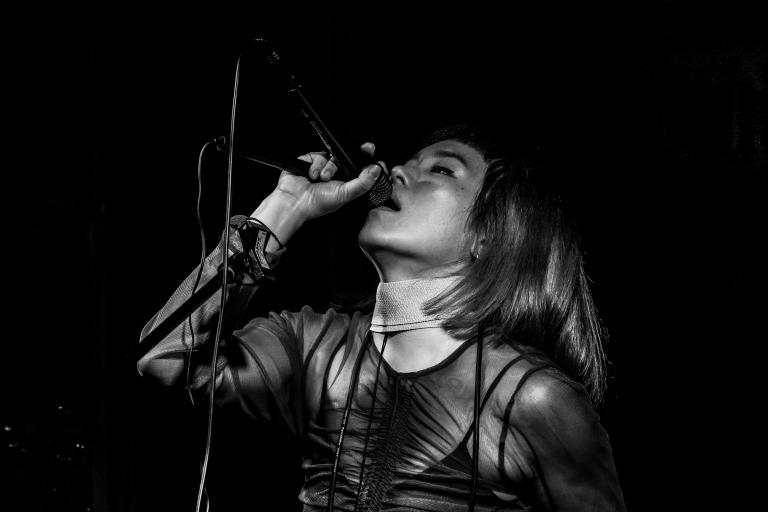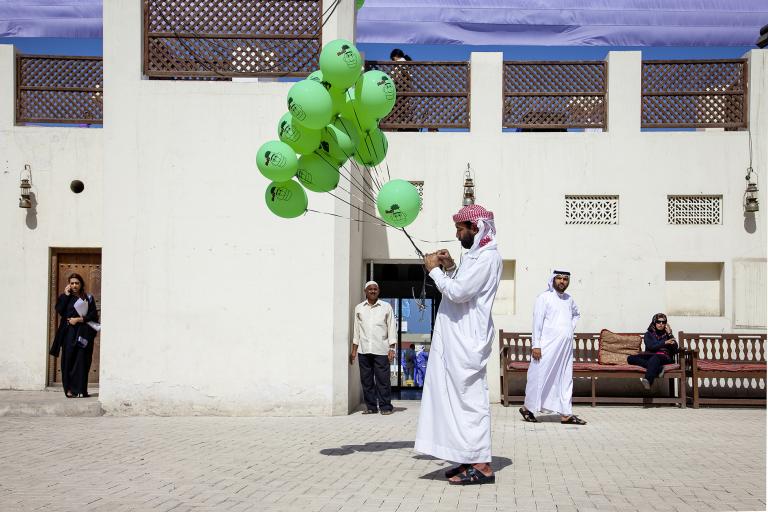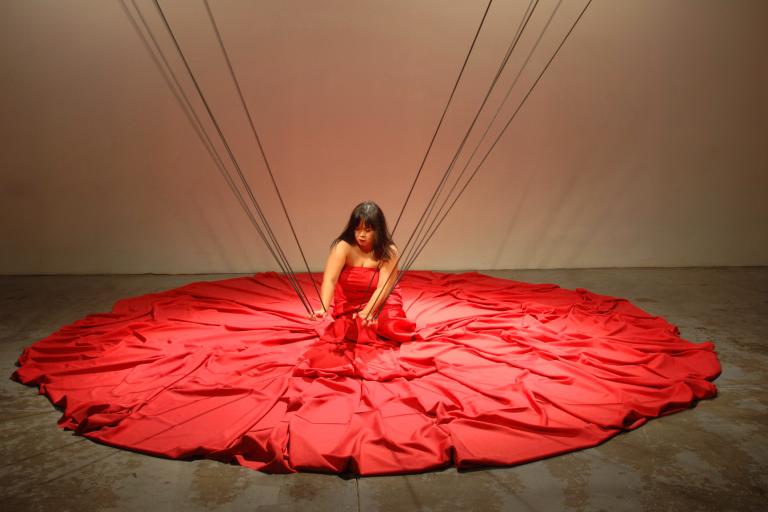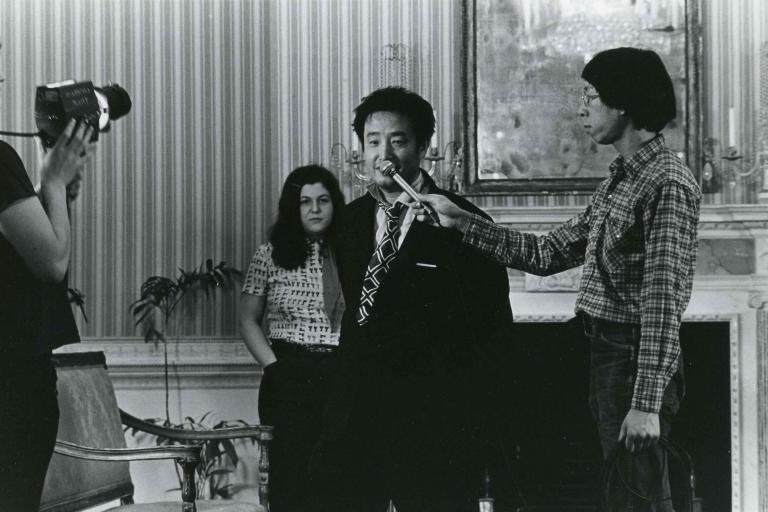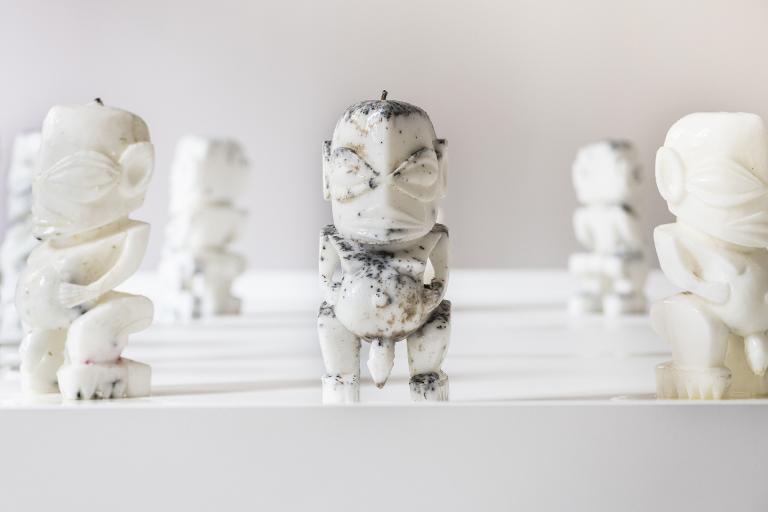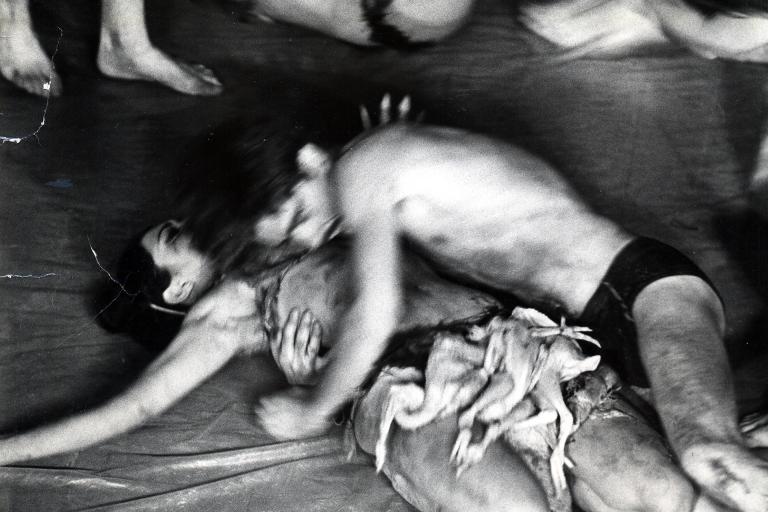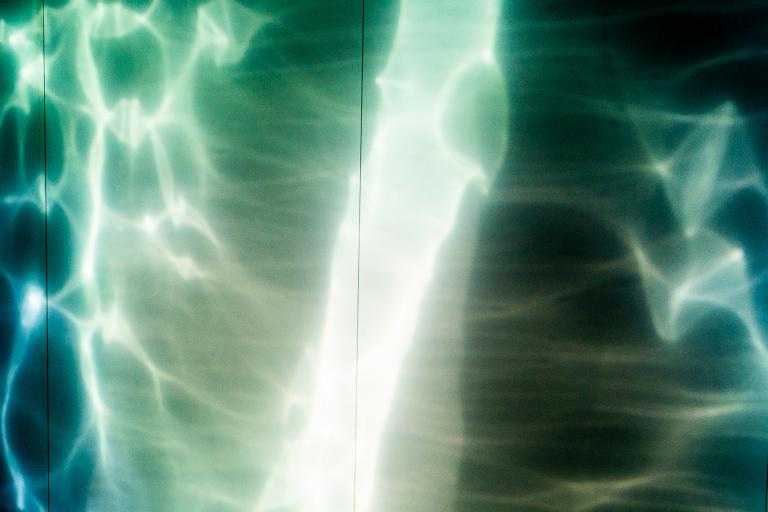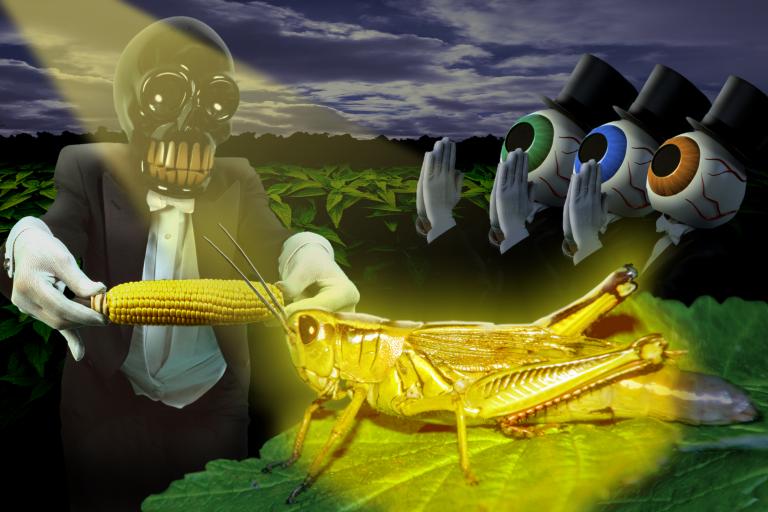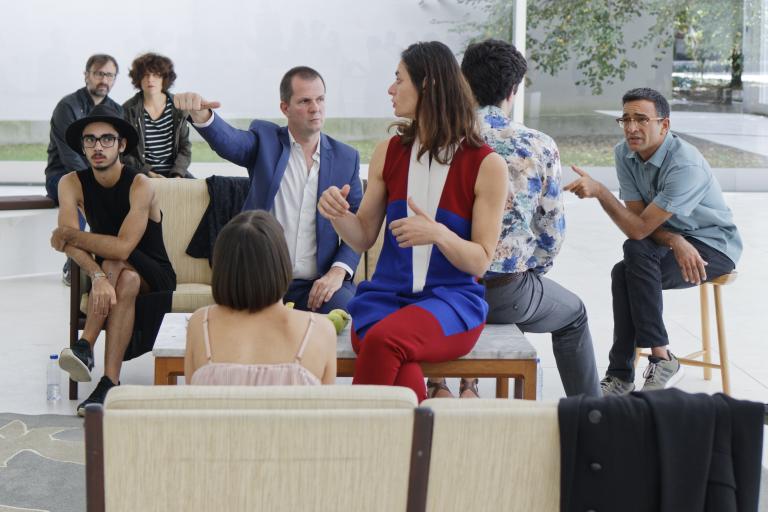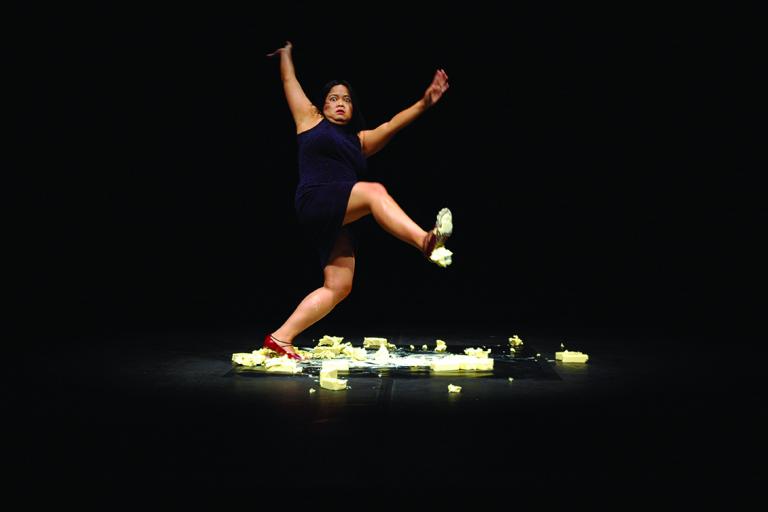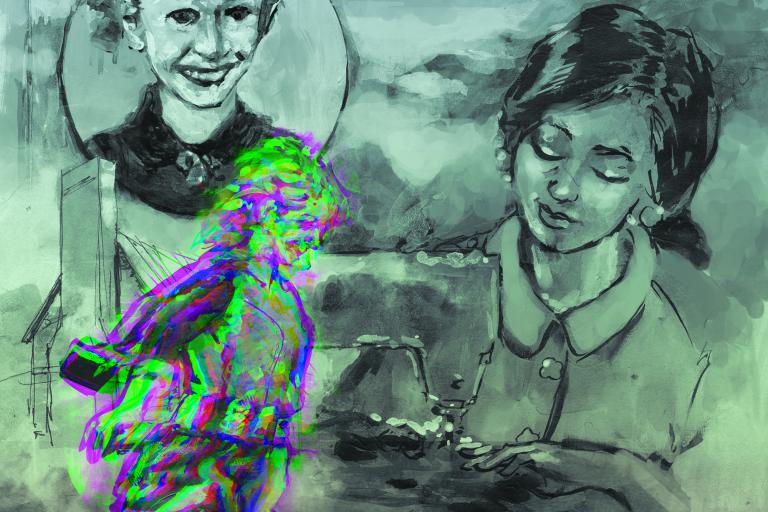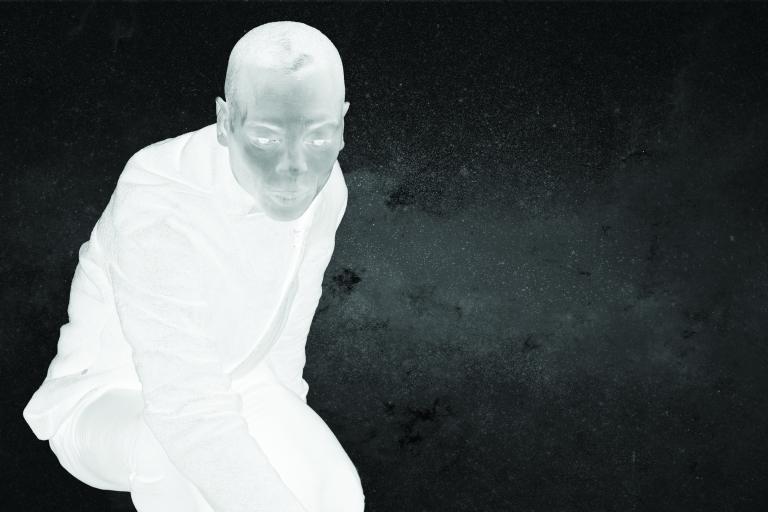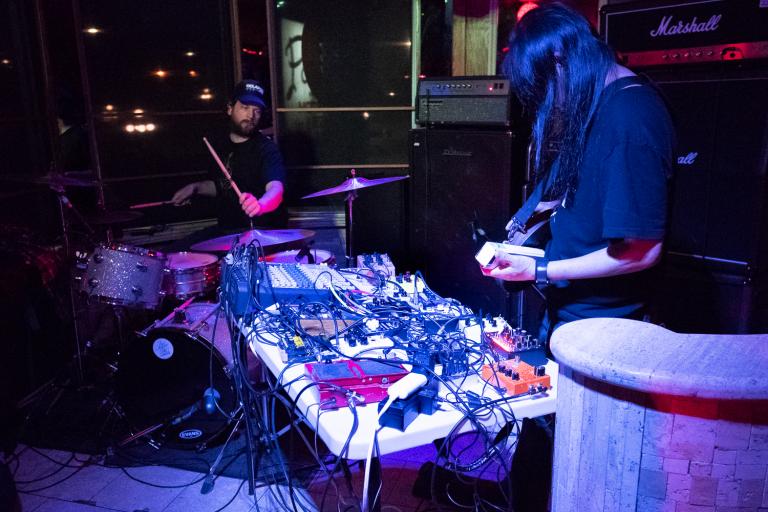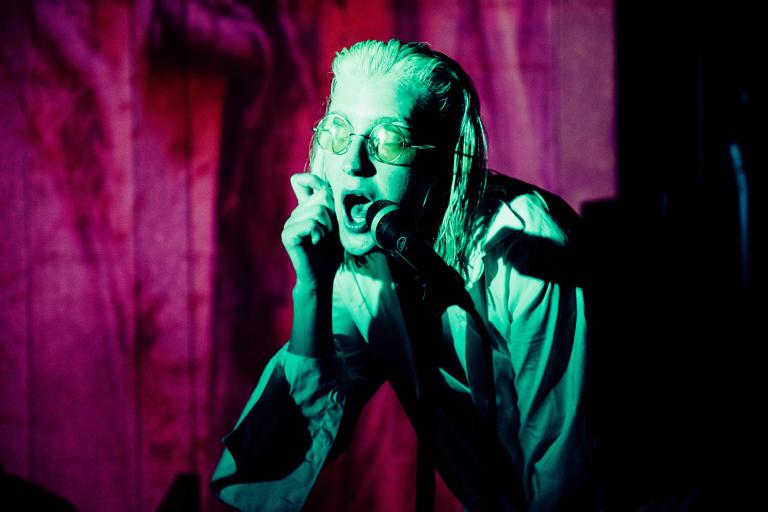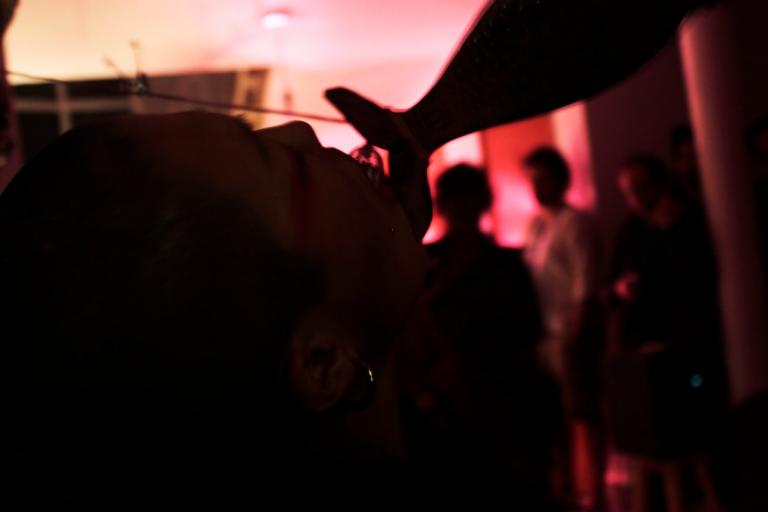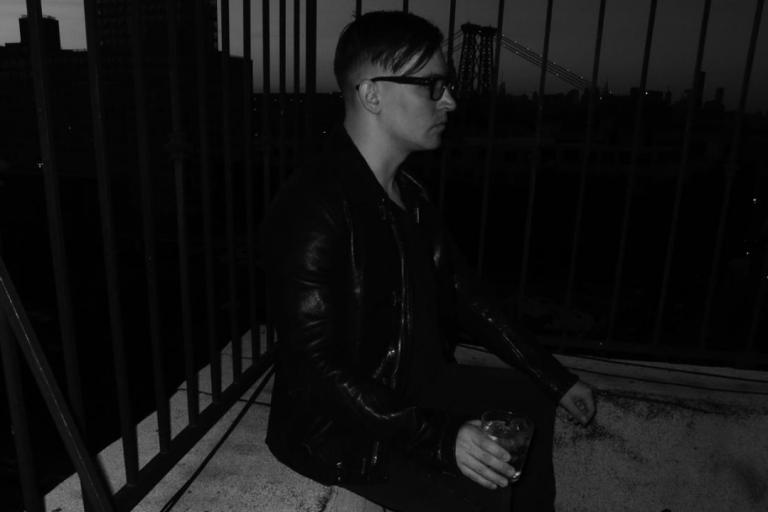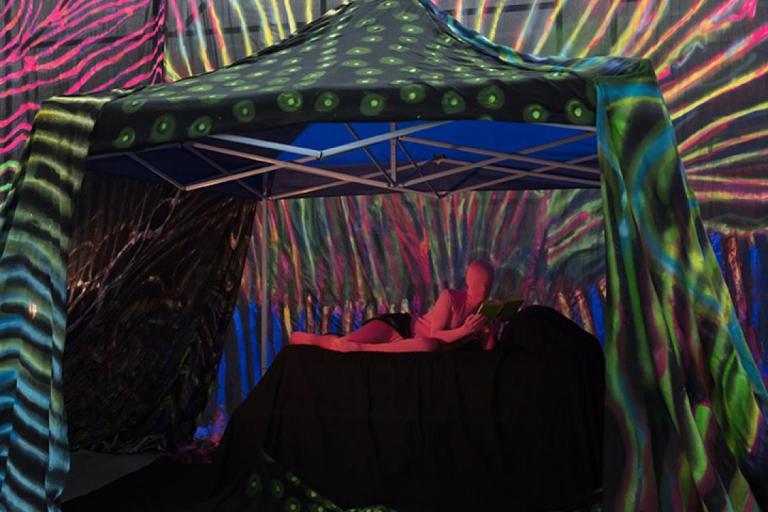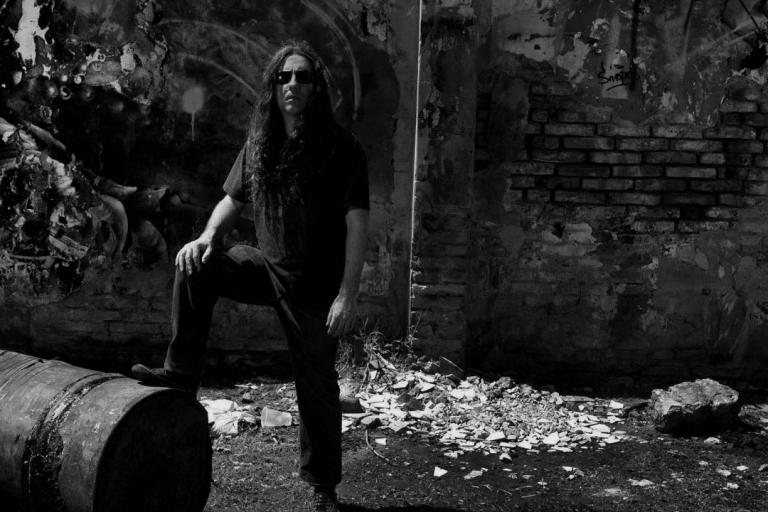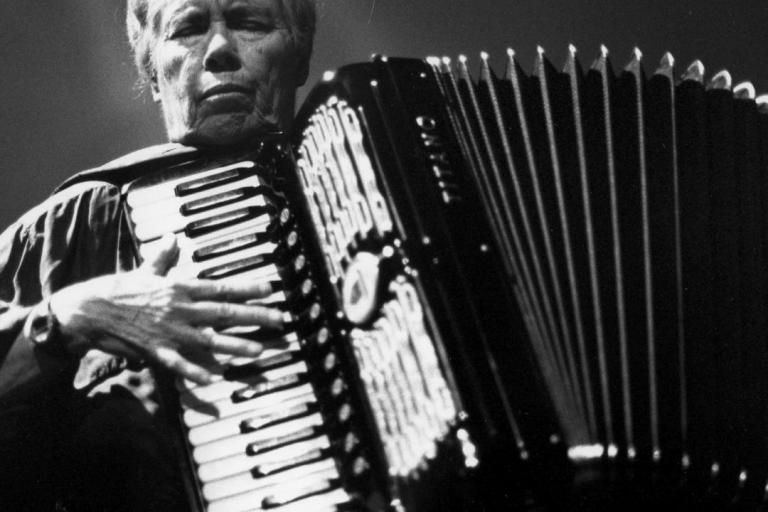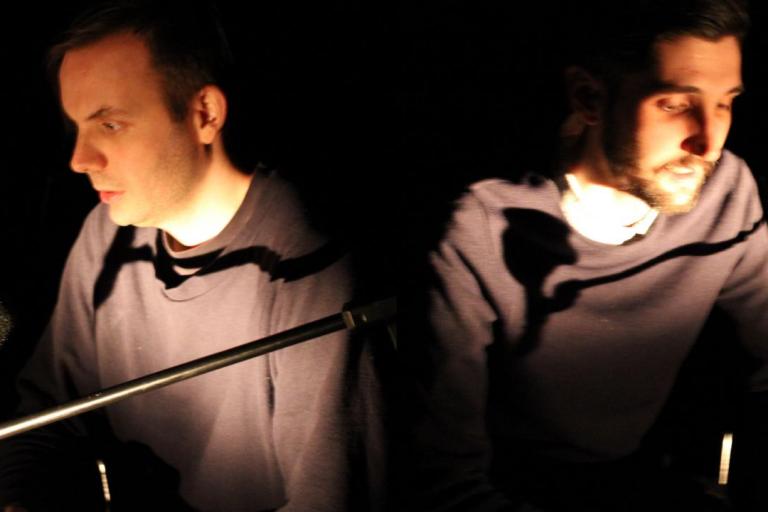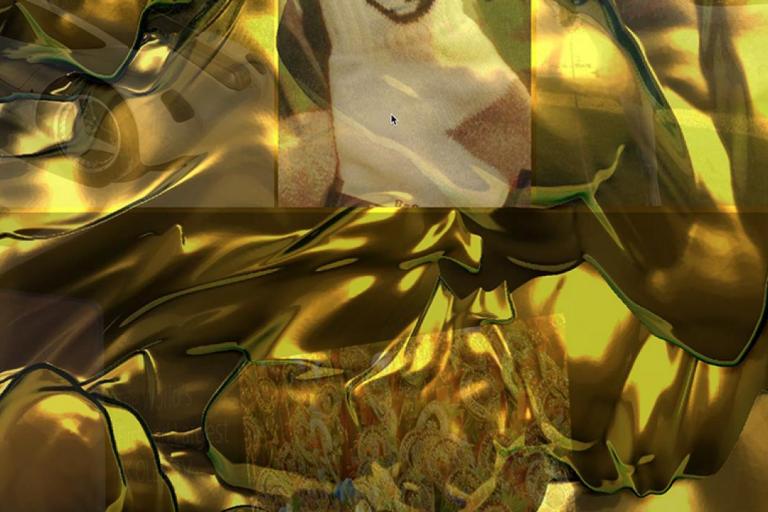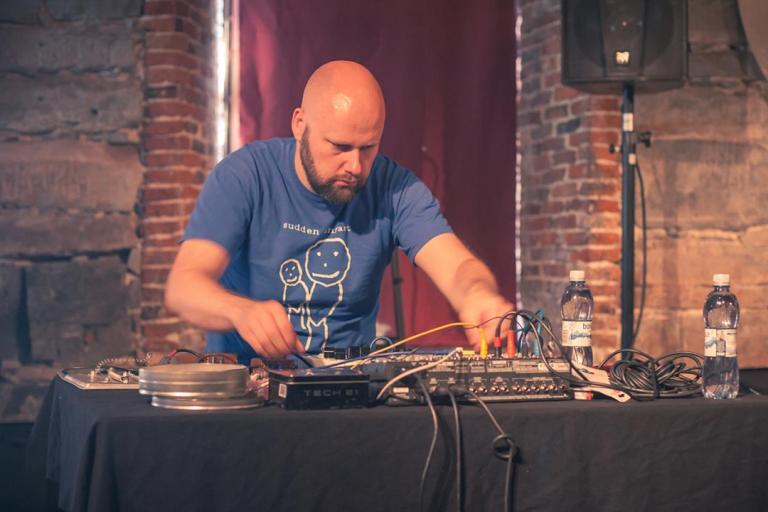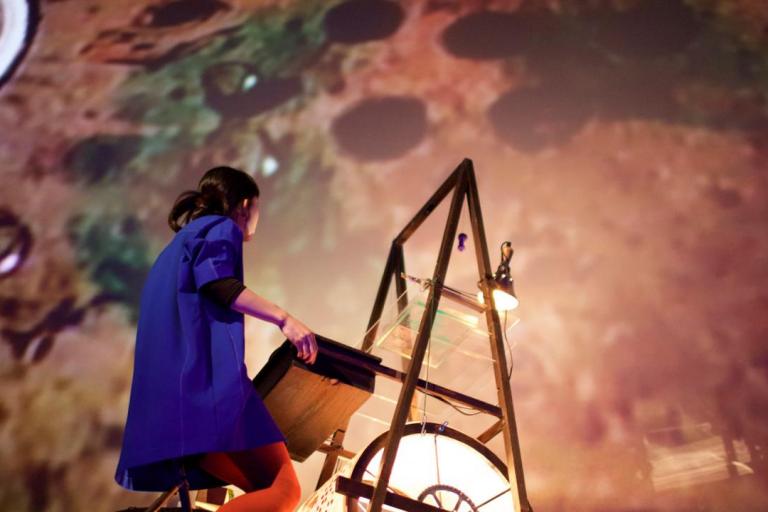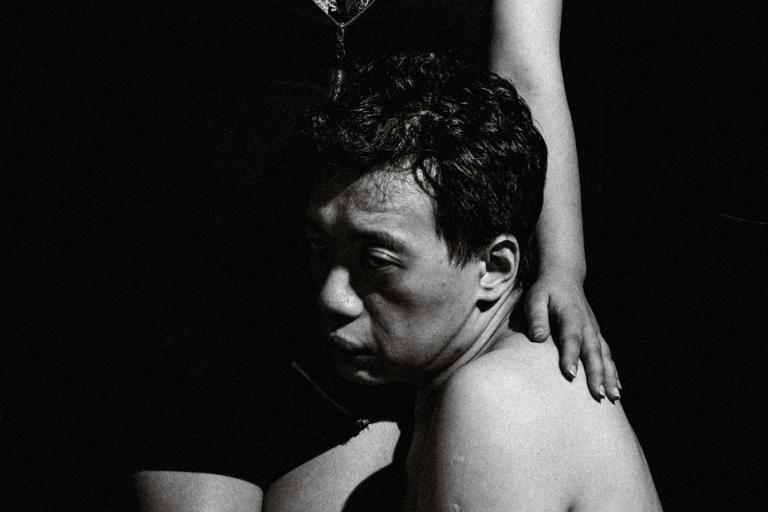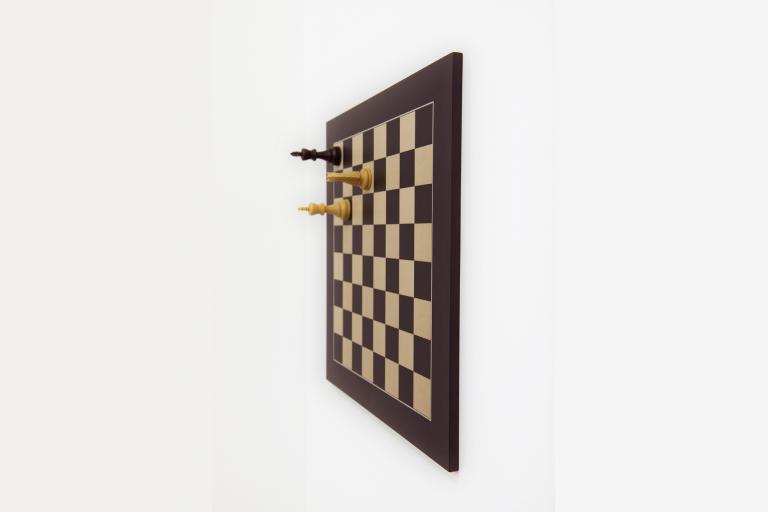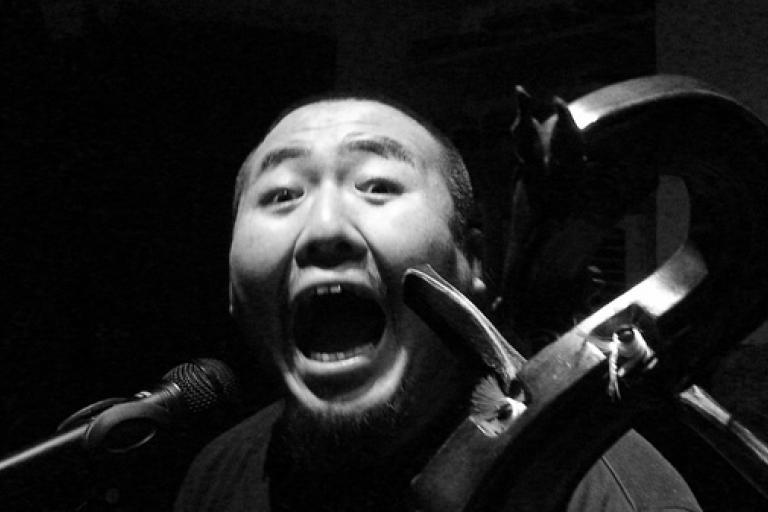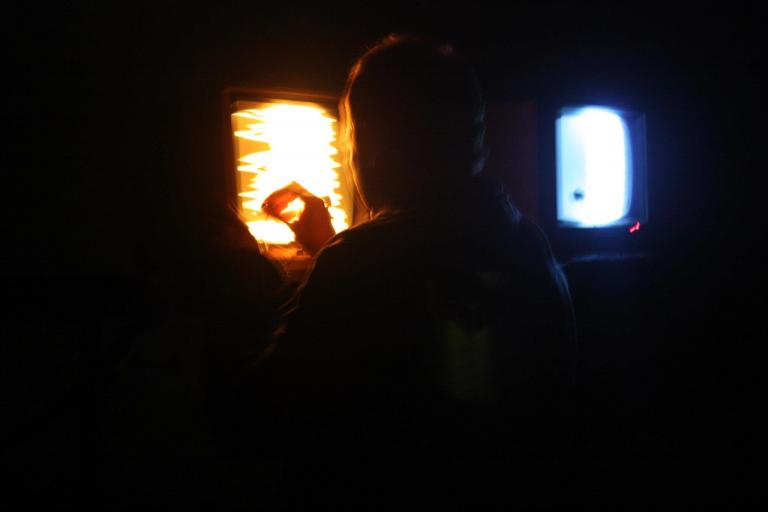For the past 42 years, as the lead violinist and founder of the Kronos Quartet, David Harrington has collaborated with composers and musicians from every continent, performed work nearly spanning the history of notated music, and redefined the role of a contemporary string quartet. Expressions of vitality, in all their forms, are what continue to inspire Harrington — be it through the sounds culled by NASA scientists reaching deep into the cosmos, as incorporated into 2003’s Sun Rings, or taped interviews with survivors of the Lebanese Civil War, as are heard in Mary Kouyoumdjian’s brilliant Bombs of Beirut, with which Kronos closed out their weekend as artists-in-residence at 2015’s Big Ears Festival in Knoxville, Tennessee. Nicholas Yeck-Stauffer caught up with Harrington at the festival. Here is an excerpt from their conversation covering everything from Harrington’s close collaboration with Terry Riley to the quartet’s inception through a chance encounter with Robert Crumb’s electric Black Angels over a car radio.
Nicholas Yeck-Stauffer: Now, Landfall is your piece with Laurie Anderson, and that was composed loosely in response to Hurricane Sandy?
David Harrington: Well, it ended up being that, in part — it didn’t start out in that manner. The hurricane happened during the middle of the process of composition and figuring out the piece, so the experience of that event and its effects came into play.
I don’t believe Laurie has necessarily talked about this publicly, but we all knew what was happening with Lou [Reed] at the time, and that was also part of the piece. Lou was at several rehearsals and heard the premiere, and for a while, it seemed like his condition was going well. Anyways that is not something she usually publicly talks about, but clearly, he has entered the piece. The lyrics changed after his death.
NY-S: Thank you for sharing that with me... Creative relationships and collaborations are an integral part of the history of your group. One of the very exciting things about this festival is how many of those relationships are foregrounded.
DH: Totally unique opportunity for us. We start with (pipa and ruan player and composer) Wu Man tonight, performing The Cusp of Magic, a piece Terry [Riley] wrote. We commissioned it for his 70th year, and now we are almost on to his 80th. And, of course, Laurie Anderson and Terry Riley are here as well. I think Laurie and Terry have never actually met before this afternoon, but today they will and have a jam that will become part of the concert tonight if we can learn the song he wrote.
NY-S: In an afternoon?
DH: We were supposed to have a rehearsal last night, but Terry misread his schedule [laughter]. There is a song he will be singing with us we have never played before, and, you know, you just want to have a lot of rehearsal time to get his music right.

NY-S: Yes [with La Monte Young and Marian Zazeela]. Over time he must have become more amenable to performing with his voice. In composing with Terry, does vocalization come into the composition process? I know you’ve worked with him a great deal.
DH: Tonight would be the 28th piece he has written for us. We’ve worked with him for 35 years. I know that he practices singing every day; I first realized this when we were both staying in the same hotel, and I was woken up by this singing, really early in the morning, and I thought, “who the hell is that?” It was Terry, practicing his singing next door to me.
NY-S: I was surprised to hear about his passion for old standards of American popular music, like Somewhere Over The Rainbow.
DH: When you start mixing some of his loves throughout the world of music, it’s just wild. From Pandit Pran Nath to...
NY-S: Rodgers and Hammerstein.
DH: Yeah, you name it. And he practices Bach regularly on piano. With Terry, you hear all sorts of things. For example, he wrote this fabulous concerto called The Sands for Kronos Orchestra, which is an homage to Gil Evans and the orchestration that he did with Miles Davis.
It was also Terry that introduced me to (Sudanese composer and multi-instrumentalist) Hamza el Din, one of the greatest persons that I have ever known. Amazing musician and amazing person. Hamza was from Sudan, and he brought the music from his culture to America to study. He was a complete polymath, that kind of guy.
I was with him in Japan once, and we were having breakfast at this upscale restaurant, and he had on his customary clothing and turban. A woman cautiously came up to take our order, and he responded in flawless Japanese. The look on her face was just priceless, total shock. He was one of these people who just picked up languages. The inclusion of his composition “Escalay” on our [1992] album Pieces of Africa would not have happened if Terry hadn’t introduced me to Hamza and his music.
NY-S: Now Hamza el Din’s The Water Wheel was originally released [in 1974] as part of Nonesuch’s Explorer Series. So it’s fitting that Pieces of Africa was included in the [2014] Explorer Series box that Nonesuch released of your work. How did that come about?
DH: That was (president of Nonesuch) Bob Hurwitz’s idea to celebrate the 40th year of Kronos. When he suggested the title, I was very moved. Many of us grew up with the Nonesuch Explorer Series [which introduced many diverse musics and instruments of the world to American home listeners in the 60s], so the idea that he would want to include the work of Kronos in that history meant a lot to me. We reissued five of our albums that specifically showcase the music of different regions and cultures, and we released a new album called 1000 Thoughts. 1000 Thoughts features music from 14 different cultures, one of my favorite albums we have ever made.
NY-S: This morning, I was listening to the recordings of Jean C Roche. He made field recordings of nightingales and other bird songs, I think around the late 50s. They are presented like concerts or high art. He titles them "In Willows, Beside a Lake, Southern Finland, June”, along those lines. I think contextualizing them in this way, as performances, is really great. In nightingale songs, you hear these oscillations, these loops, and dives. A different species’ codes. They are beautifully complex, and it brings up questions about non-human expressivity, and how expression relates to life in general.
DH: Yes, this really fascinates me. For a presentation in Knoxville yesterday, I played music by Weddell Seals from Antarctica; if you want to hear some of the wildest music on the planet, listen to the Weddell Seals. Then I played a recording of these beetles chewing up pine trees in the forest of Arizona. Somebody figured out how to put a microphone inside a tree. The sounds are unbelievable. I played some songs by a North Canadian dog choir, where there are literally musical leaders and followers. It is choir music! Music is more prevalent than we might think.
NY-S: I found myself thinking of Kronos Quartet, the constancy of your chosen instrumentation being almost atavistic in a way. You said once that in an “age of increasing impersonalization, the quartet still sounds personal, like voices”.
DH: Yesterday, I played the very chord that inspired me to form a string quartet when I was 12 years old — and I can tell you exactly what chord and what group: it’s the E flat major chord that opens Beethoven’s Opus 127, the first of his late quartets, from a 1961 recording by the Budapest Quartet. I carry that sound around with me in every moment of my life. It awakened something for me that no other sound had ever done up to that point, and I had to try to make that sound. I had to. It wasn’t a choice; I had to do it.

So I got the score, I checked out the parts from the Seattle public library, I saw “two violins a viola, and a cello, alright” and I called up three other players from the Seattle Youth Symphony. We got together, and my group sounded like the Budapest Quartet — for a tenth of a second.
[laughter]
After that, it went south pretty damn fast. But all that a person needs is a tenth of a second. I got a chill in my back, and I thought “god damn, I can do this”. It gave me so much hope and desire that it set me on a path — and if I could do that for one other person, I would love that.
NY-S: I know at a certain point electric technology came on board for Kronos — that might have been from the beginning where you guys mic’ed the violins, played through amplification. Was that radical at the time to do that?
DH: Well here is what happened. In August of 1973, I heard Black Angels, on the radio, by George Crumb.
I had never heard an amplified string quartet. I didn't even know what some of the instrumentation was at first. Bowing gongs and crystal glasses. Tongue clicks. Shouting. To hear that for the first time — I had found my song. I was 23 years old, and suddenly, I had a response to the American war in Vietnam. Schubert is quoted in Black Angels, there is renaissance music, devil music. It sounds like Jim Hendrix, but even crazier. There is so much in that piece. I got the score and I realized, “I’m going to have to get a group together. I’m going to persevere and spend a lot of time rehearsing in order to play that piece”. It’s why I started Kronos Quartet. So, in a sense, you could say that amplification happened right at the beginning.

It was Different Trains by Steve Reich that radically changed Kronos because we started touring with that piece. We would show up for soundcheck, and we would have a house sound guy who was directly affecting all aspects of our music. It was totally unsatisfactory — no matter what “house” it was, Carnegie Hall or wherever. They didn't know the piece; they didn't know us; they didn’t know what we were doing.
Now it is normal for people to be writing for an amplifier in a string quartet. We had to show up to innumerable concerts with bad sound, fluorescent lights and four colors of chairs and music stands that didn’t work and all kinds of crap until, in 1988, we finally got it: we are just going to have to take care of ourselves. If we want to have a coherent presentation and focus the audience's attention on our music, we will have to have more control.
NY-S: The typical conception of a string quartet belongs to a pretty formal, academic framework, even within the 20th-century avant-garde. Of course, people like Cage and Stockhausen furthered the conceptual boundaries of composition, and minimalism entered the realm of popular culture as Terry Riley’s Rainbow in Curved Air was produced as a rock album, for the most part, distributed and packaged in that way — lines blurred, certain hierarchies flattened. I feel like Kronos Quartet is a really visible linchpin for overlaps between popular, experimental, and classical musics - can you help contextualize for me how this came about?
DH: The day I first met Terry Riley, we were rehearsing the very first piece ever written for Kronos — It was called Travelling Music, by Ken Benshoof, my composition teacher from when I was 16 years old. We had started out playing mainly music you could buy from a publisher, or you could get from a library, learning the music of Schoenberg, Shostakovich, all the Bartok Quartets... and Black Angels, of course. I asked Ken to write an original piece for us. Turns out, Ken went to college with Terry at San Francisco State in the 1950s. Terry hadn't heard a note of Ken’s music in 20 years, and now, through music, all of a sudden, there is a connection. It was one of those magical things.

As time went on, we would play any composers that were interesting to us. At the same time, we were beginning to write new pieces, lots of them. So naturally, fewer and fewer pieces that we were playing in concert were from the past. By the time we started working with Terry, almost 75 percent of our music was being written contemporaneously. For example, the last time Kronos played Shostakovich’s 8th Quartet — one of my very favorite pieces — was the day we recorded the Black Angels album (1990). We have not played it since.
NY-S: The little I know about Shostakovich is interesting. Despite the extreme anxiety and fear he lived with under Stalin, he still wouldn’t, or couldn’t, consistently compose safe work, even at the risk of death.
DH: He had a lot of trouble. Also, he was bringing in Jewish music; in the 8th Quartet, there are several Jewish themes. He was up against racism and modernism and all sorts of things. The directions he wanted to move in were counter to what the officials thought were proper for a musician to be headed.
NY-S: His story, the way his life repeatedly hung by a thread based on an interpretation of his work, speaks of the powerful and dangerous reactions people have had to music through history. The Rites of Spring, Reich’s Four Organs. These moments where music brought about these very real adverse reactions from people. You have been performing around the world for over 40 years now. Have you experienced anything like this?
DH: We’ve had these things happen. Like when we played at Darmstadt. If you aren’t familiar, it is the music festival established right after World War II, not so far from Frankfurt. I believe in the earliest days, Boulez and John Cage were part of the formation of it. It became this meeting point every summer for musicians that were doing new things,
NY-S: Yes. Stockhausen, the Serialists...
DH: Exactly. By the time we got there, in 1984, to me, it was a totally weird place, so nationalistic. I remember one concert we played music by Wolfgang Rihm, a German composer, a very interesting composer. The Germans loved it, the French booed, the Italians hissed — it was an insane scene. And then we would play a piece by Terry Riley, and everyone would boo.
[laughter]
We went there one more time in 1986, and after that, I decided that, well, I think it’s a good thing when our audience is made up of very divergent interests and personalities and backgrounds. Not necessarily just composers that have this festival centered on their own point of view just to proselytize. So we haven’t gone back. We’ve tried to go everywhere else…




